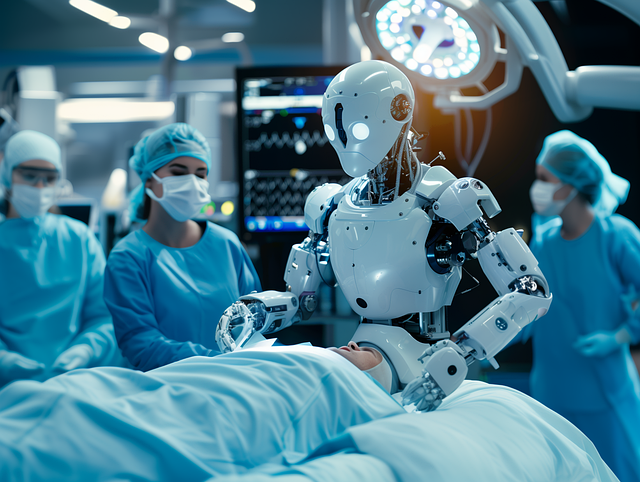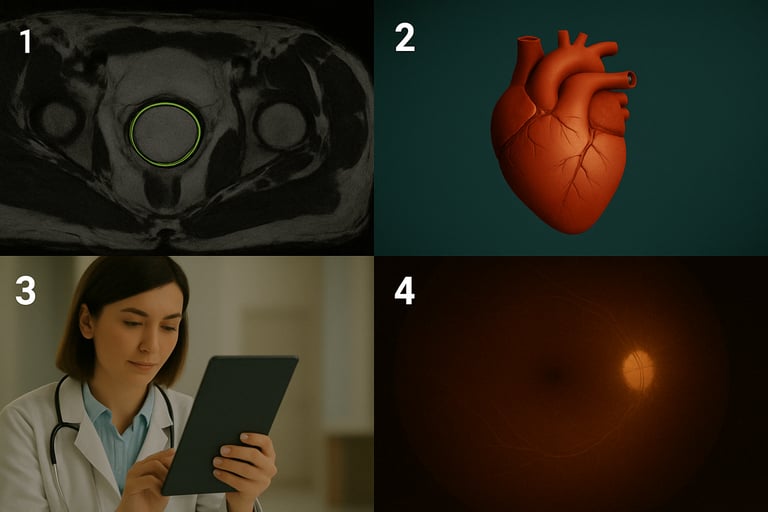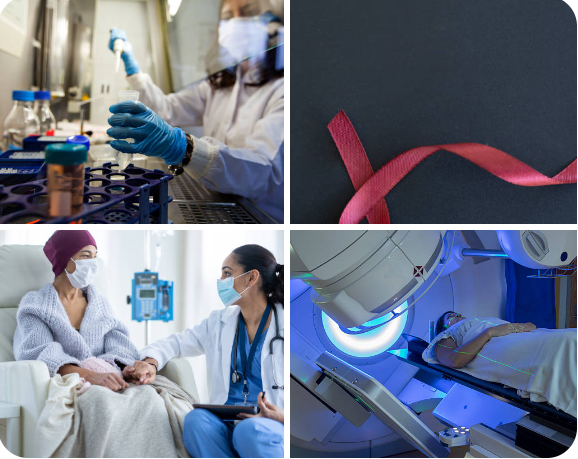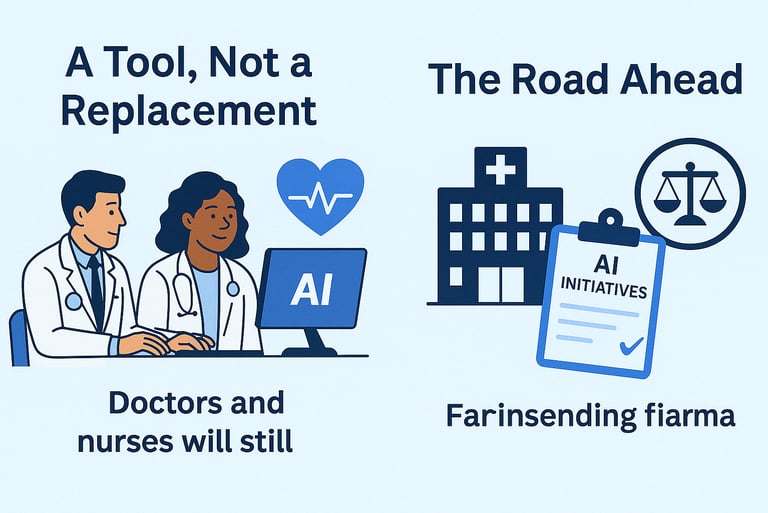How AI is Revolutionizing the NHS: Welcome to the Future of Healthcare
Discover how AI is transforming the NHS—from early cancer detection to smarter diagnostics—making healthcare faster, and fairer.
Venkata Ram C. R.
4/20/20254 min read


Imagine walking into a hospital where doctors are assisted by powerful digital brains that can spot diseases faster than the human eye. Sounds futuristic? It’s already happening—right now—in the UK's National Health Service (NHS).
From early cancer detection to streamlining paperwork, Artificial Intelligence (AI) is quietly transforming how care is delivered. And the NHS, with its vast data and unified healthcare system, is in the driver’s seat of this medical revolution.
Let’s break down how AI is making healthcare smarter, faster, and more human-centered—with real stories from the frontlines.
From Sci-Fi to Hospital Floors: AI in Action
InnerEye at Addenbrooke’s Hospital
Think of a radiologist staring at hundreds of MRI scans a day—it’s like finding a needle in a haystack! But now, Microsoft’s InnerEye tool helps them zero in on suspicious spots in prostate cancer scans—in seconds.
Doctors don’t have to waste time marking up images manually. AI does the grunt work, while they focus on treatment decisions, not image editing.
“It’s like having a super-smart assistant who never gets tired,” says one radiologist at Addenbrooke’s.


Image: 1 - Prostate Cancer Detection Visualization: MRI scan with Microsoft's InnerEye AI
2 - Heart Disease: CT scan with HeartFlow AI
3 - Cancer Diagnostics Identification: GP using C the Signs app
4 - Eye Disease: Retinal scan with the DeepMind AI






But here’s the catch: the success of AI depends on more than fancy algorithms. We need:
Strong regulations
Patient consent
Staff training
Public trust
If we get it right, the future of healthcare could look something like this:
“You walk into your GP's office. They already know your risk profile, your latest test results, and the early warning signs flagged by AI. Diagnosis is swift. Treatment is personal. And you walk out feeling cared for—not just processed.”
A Tool, Not a Replacement
Let’s be clear: AI won’t replace your doctor.
It’s more like a very clever intern—one who can read scans in seconds, crunch numbers 24/7, and spot trends in your bloodwork from a mile away. But it still needs supervision.
Doctors will still deliver the human touch—the empathy, the context, the wisdom. AI simply gives them more time and sharper tools to do it.
What’s Next for AI in the NHS?
The NHS isn’t slowing down:
AI Awards are funding promising health tech startups
Pilot projects are testing new tools across hospitals
Collaboration hubs are bringing together scientists, doctors, and developers
Why the NHS is Perfect for AI?
Unlike healthcare systems in other countries that are spread across private providers, the NHS is like one giant team—all under one roof. This makes it easier to test, tweak, and roll out AI tools across hospitals and clinics.
Plus, the NHS collects millions of patient records (securely, of course). That kind of data is pure gold for training AI to be accurate and fair—like teaching a self-driving car with thousands of hours of road footage.
And with organizations like NIHR (National Institute for Health and Care Research) involved, patients and the public are included in shaping AI tools—so it’s not just about tech; it’s about trust.
But Let’s Not Get Carried Away
Yes, AI is impressive—but it’s not magic.
Doctors still matter: You don’t want a machine making all your health decisions, right? Neither do we.
Training is a gap: Many NHS staff haven’t been trained in using AI. Updating the skills of thousands of clinicians is no small task.
Automation bias is real: If doctors start trusting AI blindly, mistakes could slip through.
Ethical concerns: Who owns your health data? How do we make sure the AI isn’t biased against certain groups?
Then there’s the biggest question: If AI gets it wrong, who’s responsible? The developer? The doctor? The hospital?
DeepMind & Moorfields: Seeing the Future
At Moorfields Eye Hospital, a partnership with DeepMind created an AI that can diagnose over 50 eye diseases—often matching the skill of top specialists. Not only does it reduce waiting time, it helps doctors prioritize the most urgent cases. Imagine cutting a 6-week wait down to 2 days just because AI sorted the line.
HeartFlow: 3D Models of Your Heart
Ever had a CT scan? Now imagine that scan being turned into a 3D model of your heart—instantly. That’s what HeartFlow does. Doctors can see if your blood flow is restricted, without poking around with invasive tools. It's faster, cheaper, and more comfortable for patients.
"C the Signs" – Spotting Cancer Before It's Too Late
Used by GPs across London, the “C the Signs” app scans your symptoms, age, and risk factors to detect early signs of cancer. Think of it as a cancer-detective sidekick for your local doctor—flagging patients who need urgent checks, even before obvious signs appear.
